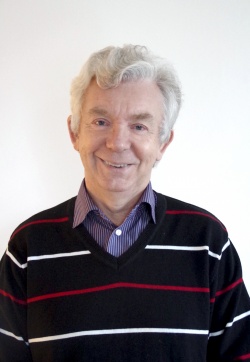Professional pressure
Doctors divided about tutoring future colleagues
Professionally active doctors increasingly hesitate to take on the task of tutoring students from undergraduate medical education. Stress and pressure from higher up, and sometimes also from colleagues, contributes to this ambivalence, according to a thesis at Sahlgrenska Academy.


”If you don’t have clear support from management, a mistrust of the tutors can arise; you’re viewed as someone who doesn’t take care of patients and is just a burden. Tutoring should provide academic merits and a useful qualification in the same way as when somebody conducts research on the side,” says Bernhard von Below, MD/PhD, Researcher at the Institute of Medicine with a base in primary health care as a specialist in general medicine at the Närhälsan health care center in Floda.
As the educational director for the Early Professional Contact course, he has monitored developments concerning medical students’ in-service training during undergraduate studies for several years. Periods of in-service training at health care centers and hospitals are held throughout the medical program’s 11 semesters. In the first two years, it involves three to four days a semester, and they increase considerably later in the program. “Learning the profession at the workplace is an incredibly important part of their education. They have to have well-educated tutors, otherwise it hurts the medical student’s training and, in the long term, the medical profession itself,” says Bernhard von Below.
A stimulating task
The thesis shows that clinical tutorship is appreciated by the tutoring physicians and gives them joy and stimulation. The tutors are motivated and driven by a desire to give the students their best, better than what they themselves received once upon a time. Another driving force is the loyalty to their own professional specialty. However, junior doctors more often seem to consider whether the conditions are reasonable before they take on the task. These are the findings of a study that Bernhard von Below did with doctors training for to become clinical tutors.
“Today’s healthcare system is being pressured from many directions, with high demands on production and detailed management that mean that tutoring is at risk of becoming the exception rather than the rule. Doctors are loyal to their patients and if they feel that they don’t have the support of managers and colleagues, they often choose to leave the tutoring role and not take it on the next time,” he says. “This is a trend that has been happening for eight to ten years and is associated with increasing pressure in the healthcare system and physicians’ difficulties deciding over their own workdays,” continues Bernhard von Below.
Conflicts on the factory floor
Important factors that make it easier for the doctors to be tutors are clear support from management and time allocated for the task. They also need support from the others at the workplace and understanding for there being fewer patient contacts. Training and feedback on how the tutoring was carried out are also important. According to Bernhard von Below, the structures are often in place. How a health care center or clinic should accept students is decided and set, but in reality things can nonetheless slip. “There’s a positive development in terms of agreements. What’s hard is securing the time for tutoring. In theory, it’s going in one direction, in practice it’s going in another. There can be an agreement in principle, but on the factory floor conflicts still arise,” he notes.
Source: University of Gothenburg
01.07.2017




